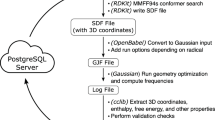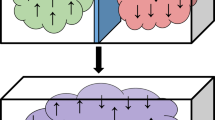Abstract
THE first demonstration that molecules differing only in their isotopic constitution could be separated by the technique of gas chromatography was made by Wilzbach and Riesz1, who used a packed column to separate deuterated and tritiated cyclohexanes. Later, Cartoni et al.2 showed that capillary columns were more efficient for this purpose, and achieved a separation of all the deuterated benzenes on a 500-ft. column. Cvetanovic3 demonstrated the value of this technique in the examination of radical reactions, being able to separate the products of the combination of protonated and deuterated alkyl radicals.
This is a preview of subscription content, access via your institution
Access options
Subscribe to this journal
Receive 51 print issues and online access
$199.00 per year
only $3.90 per issue
Buy this article
- Purchase on Springer Link
- Instant access to full article PDF
Prices may be subject to local taxes which are calculated during checkout
Similar content being viewed by others
References
Wilzbach, K. E., and Riesz, P., Science, 126, 748 (1957).
Bruner, F., and Cartoni, G. P., J. Chromat., 10, 396 (1963).
Falconer, W. E., and Cvetanovic, R. J., Anal. Chem., 34, 1064 (1962).
Gray, P., and Thynne, J. C. J., Trans. Farad. Soc., 59, 2275 (1963).
Author information
Authors and Affiliations
Rights and permissions
About this article
Cite this article
MAJER, J., CAPEY, W. & ROBB, J. Isotope Effect in Radical Reactions. Nature 203, 294–295 (1964). https://doi.org/10.1038/203294a0
Issue Date:
DOI: https://doi.org/10.1038/203294a0
Comments
By submitting a comment you agree to abide by our Terms and Community Guidelines. If you find something abusive or that does not comply with our terms or guidelines please flag it as inappropriate.



